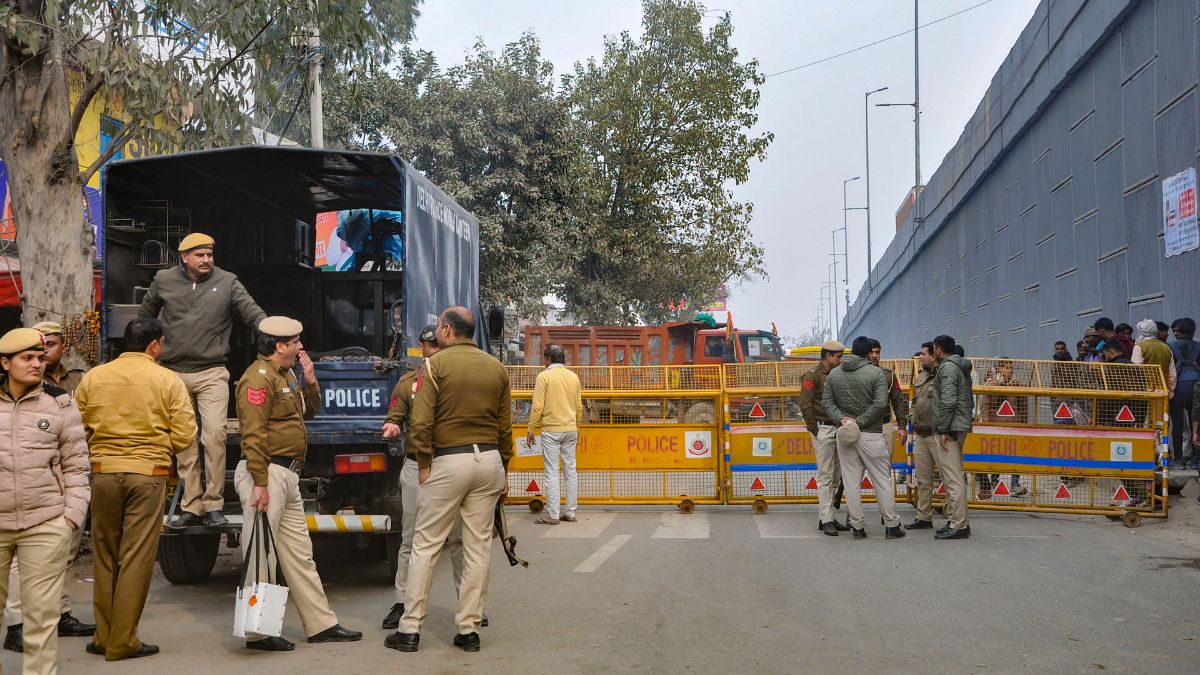Extensive security measures, including a substantial deployment of police and paramilitary forces, along with multi-layered barricading, have been implemented to secure the borders of the national capital at Singhu, Tikri, and Ghazipur. The aim is to prevent the farmers participating in the 'Delhi Chalo' march from entering the city, scheduled for Tuesday.
Drones are being used by the police to closely monitor the border points, ensuring preparedness for any potential law and order situation. Police also conducted a tear gas drill near the Shambu border.
DCP Ankit Singh told ANI, "The arrival of people in groups is prohibited. Bringing tractors, trolleys, or any form of weapon is not allowed. Delhi Police force and CAPF have been deployed, and we have made all necessary arrangements to completely seal this border. This border cannot be breached, and these arrangements will persist as long as Section 144 is in effect".
In anticipation of the farmers' protest and march towards Parliament, the Delhi Police initiated preparations to control the advancing farmers' march in advance, implementing multiple layers of barricades with concertina wires, nails, huge concrete blocks, and containers along the entry points to the national capital.
The enforcement of traffic restrictions and stringent security measures has resulted in significant challenges for motorists commuting between Delhi and NCR towns.
The Delhi Police has imposed prohibitory orders for a month, prohibiting the entry of processions involving tractors, trucks, or other vehicles into the city. Police Commissioner Sanjay Arora issued an order imposing a complete restriction on the assembly of people, rallies, and the entry of tractor-trolleys carrying people, PTI reported.
Recalling the farmers' protest in 2020, mainly led by farmers from Punjab, Haryana, and UP, who staged a sit-in at three border points - Singhu, Tikri, and Ghazipur - the police have taken preventive measures to avoid a similar situation, as per the report. A makeshift office has been established at Singhu border for continuous monitoring of the evolving situation.
According to PTI report, the police have sealed rural roads bordering Haryana to obstruct protesters from advancing towards Delhi, resulting in substantial paramilitary deployment on Delhi-Rohtak and Delhi-Bahadurgarh roads. Concrete blocks and razor-sharp wires have been strategically employed to block roads, with drone surveillance in operation.
The sealing of borders has led to traffic congestion in the border areas, causing sluggish vehicular movement inside the city. Several farmer associations, primarily from Uttar Pradesh, Haryana, and Punjab, have called for the march on February 13 to demand a law guaranteeing MSP for their produce.
Delhi Police Commissioner Sanjay Arora inspected the city's borders with Haryana and Uttar Pradesh on Sunday to assess the security arrangements. Traffic restrictions, initially imposed for commercial vehicles at the Singhu border from Monday, have now been extended to all vehicle types starting Tuesday.
With over 5,000 security personnel deployed, cranes and earth movers with large containers are actively working to block roads. The implementation of multiple security barricades, along with nails on roads, aims to thwart any attempt by protesting farmers to enter the national capital on vehicles. Additionally, prohibitory orders under Section 144 of the Criminal Procedure Code (CrPC) have been enforced in the northeast district of Delhi to maintain law and order.


